The canonization of Archbishop Óscar Romero in 2018 brought renewed attention to the slain priest’s witness and legacy of promoting social justice. This year, LANACC will focus on a contemporary problem that demands urgent attention and ties into the core themes of Romero’s mission: gang violence.
Before his death at the hands of a Salvadoran death squad in 1980, Romero predicted the rise of gang violence in his homeland. Romero Days 2019 will focus on WWOD – “What Would Óscar Do?” – in light of his dedication to transitional justice, both in dialogue and action, and his commitment to bringing nonviolence into a new era, particularly as it relates gang activity in El Salvador and the United States.
With some politicians and media outlets promoting a false narrative about Central American gang violence, many mistakenly blame an MS-13 “invasion” from El Salvador with bringing that violence to the US. This distortion of the record needs to be addressed. In reality, MS-13 originated in Los Angeles and was shipped to El Salvador, where it grew in scope and violence. LANACC will disseminate information and new perspectives about this process, and will facilitate the formation of new partnerships to extend Romero’s legacy of support for nonviolence to the present.
2019 Romero Days Conference Schedule
March 18-20, 2019
Hesburgh Center for International Studies
University of Notre Dame
Monday, March 18
Location: Hesburgh Center, C103 (unless otherwise stated)
9:30-10:00am
Registration Check-in
10:00-10:30am
Welcome Address
Peter Casarella, Director, Latin American/North American Church Concerns
10:30am-12:00pm
Session 1—Gangs in El Salvador as a Transnational Form of Belonging, Part I—Background and History
Robert Brenneman, Saint Michael's College
José Miguel Cruz, Florida International University
Moderator: David Lantigua, University of Notre Dame
12:00-1:30pm
Lunch
1:30-3:00pm
In Spanish with consecutive interpretation
Session 2—Gangs in El Salvador as a Transnational Form of Belonging, Part II—Contemporary Perspectives
Danielle Marie Mackey, Journalist, Freelance
Juan José Martínez d’Aubuisson, Anthropologist and Author, El Salvador
Moderator: Gerald McKenny, University of Notre Dame
3:00-4:30pm
Session 3—Trauma and Violence Against Women
Laura Miller-Graff, University of Notre Dame
Rev. Mauricio Gaborit, S.J., Universidad Centroamericana
Moderator: Sharon Schierling, University of Notre Dame
5:00-6:30pm
Session 4—A Conversation with Gustavo Gutierrez and Book Presentation—Beneath a Gangster’s Mask: Poems and Reflections by Incarcerated Youth in El Salvador
Jenna Knapp, Author
Rev. Gustavo Gutierrez, O.P., University of Notre Dame (Teleconferencing)
Moderator: Peter Casarella, University of Notre Dame
Location: Hesburgh Center, Auditorium
Tuesday, March 19
Location: Hesburgh Center, C103 (unless otherwise stated)
9:00-10:30am
In Spanish with consecutive interpretation
Session 1—Human Rights in the Face of Gang Violence
Roberto Cuéllar, Director & Representative of OEI, El Salvador
Arnau Baulenas, Judicial Coordinator, Human Rights Institute, UCA, San Salvador
Moderators: Rev. Robert S. Pelton, CSC and Sean O’Brien, University of Notre Dame
11:00-12:15pm
Session 2—The Attempted Truce with MS-13 and Barrio 18 in 2011-13: What Happened and What Are the Chances for a Truce in the Future?
Héctor Silva Ávalos, InSight Crime
Moderator: Jason Quinn, University of Notre Dame
12:30-2:00pm
Lunch
2:00-3:15pm
Session 3—Decoloniality and Theology
Rufus Burnett, Fordham University
Moderator: Steve Battin, University of Notre Dame
3:15-3:30pm
Coffee Break
3:30-4:30pm
In Spanish with consecutive interpretation
Session 4—Reintegration of Former Gang Members Into Society
Pastor Nelson Moz, El Salvador
Rosa Anaya, Second Chances Program, Catholic Relief Services, El Salvador
Moderator: Margaret Pfeil, University of Notre Dame
5:00-7:00pm
Reception and Dinner Banquet
Conferral of the Annual Rev. Robert S. Pelton, CSC Essay Contest Awards
Location: The Oak Room, South Dining Hall
Wednesday, March 20
Location: Hesburgh Center, C103 (unless otherwise stated)
9:00-10:30am
Session 1— Panel Discussion—Transnational Dimensions of Gang Violence in the U.S.
Carmelo Álvarez, Human Services Coordinator, Clean and Green Program, Los Angeles
Rev. Michael Kennedy, S.J., Jesuit Restorative Justice Initiative, Los Angeles
Marco A. López, Catholic Theological Union
Moderator: Jason Springs, University of Notre Dame
11:00-12:00pm
Session 2—Peace Making in El Salvador Today
Sr. Peggy O’Neill, El Salvador
Moderator: Erin Corcoran, University of Notre Dame
12:30-2:00pm
Lunch
2:00-3:30pm
Session 3—Closing Panel Discussion-- Current Efforts to Build Bridges and Promote Human Dignity
Thomas Hare, University of Notre Dame
Kevin and Trena Yonkers-Talz, Co-Directors, Centro Ignacio Ellacuría, SJ, UCA
Richard Jones, Deputy Regional Director, Latin America and the Caribbean, Catholic Relief Services
Moderator: Peter Casarella, University of Notre Dame
Saturday, March 23rd
5:00pm
Romero Martyrdom Anniversary Vigil Mass
Basilica of the Sacred Heart
Presider and Homilist, Fr. Juan Molina, OSST
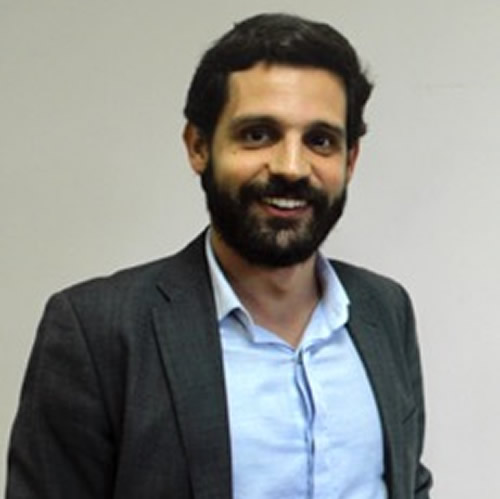
Arnau Baulenas Bardia
Attorney Arnau Baulenas Bardia is the judicial coordinator of the Institute of Human Rights Program at the Universidad Centroamericana José Simeón Cañas (UCA) in El Salvador, where he represents victims of alleged human rights violations. His work focuses on national-level cases of executions, torture, and kidnappings. He graduated from ESADE Law School at the University of Ramon Lull, where he now teaches, in Barcelona, Spain. He is currently working on a PhD and is researching issues related to access to justice for those whose human rights have been violated by businesses.
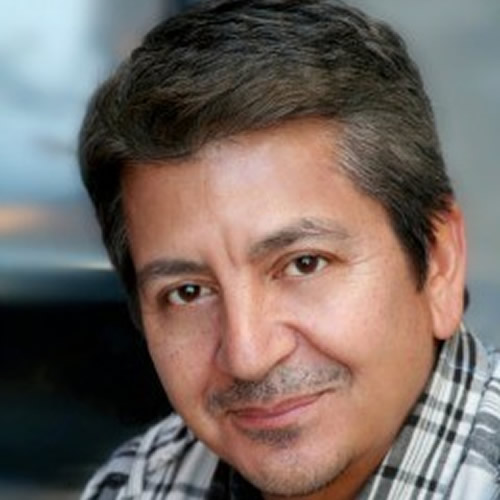
Carmelo Alvarez
Carmelo Alvarez is a longtime youth and culture advocate in Los Angeles who has worked with members of gangs including MS-13, and has opened 12 cultural spaces in communities lacking safe creative spaces for young people. He is now developing a youth multimedia school and movie production studio to prepare students to work in the film industry and give them a voice to tell their stories.
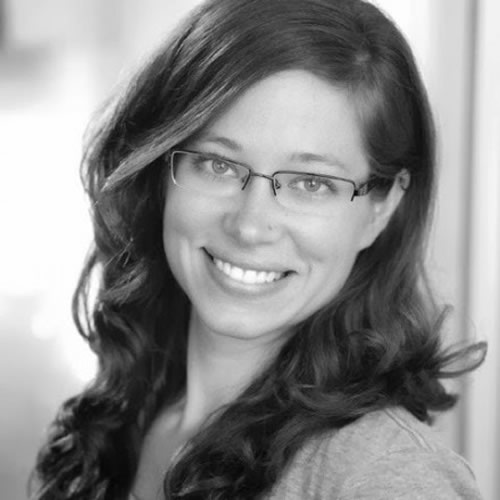
Danielle Marie Mackey
Danielle Marie Mackey is an independent investigative reporter who writes about security and development in Central America and the United States. Based in El Salvador, her work addresses topics including security policies, gangs, and violence, and has appeared in publications including The Intercept, The New Yorker, Foreign Policy, and The New Republic. She is currently one of three journalists investigating regional corruption for El Faro in conjunction with Contra Corriente. She received an MA in journalism and Latin American studies from New York University.
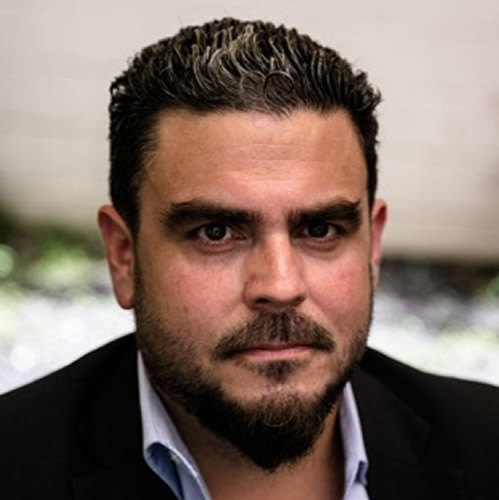
Héctor Silva Ávalos
Héctor Silva Ávalos is a journalist and a senior research fellow at the Center for Latin American and Latino Studies at American University in Washington, DC. He has worked in El Salvador and Guatemala for publications including La Prensa Gráfica, El Faro, and Plaza Pública, and in 2014 he cofounded the online magazine Revista Factum. He has also been an InSight Crime collaborator since 2012. He has an MA in journalism from the University of Barcelona, Spain, and Columbia University.
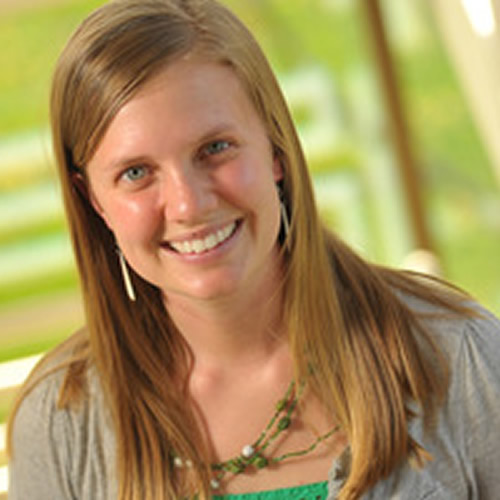
Jenna Knapp
Jenna Knapp ’10 is the director of Nueva Esperanza, a nonprofit in San Salvador that awards college scholarships to youth in marginalized urban communities who demonstrate a commitment to local peace-building efforts. She is also the cofounder of Proyecto Cuéntame, a creative writing initiative that allows those in El Salvador's youth detention centers to process and share their stories. A 2007 Experiencing the World Fellowship recipient, she studied international peace as both a graduate and undergraduate at the University of Notre Dame, with the Kellogg Institute for International Studies funding an internship in Uganda and two research projects in El Salvador. Knapp received the Institute’s Considine Award, which recognizes outstanding student contributions to the study of or service to the Catholic Church in Latin America, in 2010.
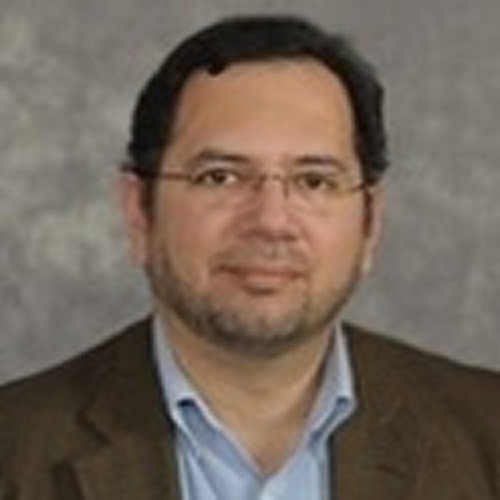
José Miguel Cruz
José Miguel Cruz is the director of research at the Latin American and Caribbean Center (LACC) at Florida International University, where he is also a visiting assistant professor at the Department of Politics and International Relations. He is an expert on Latin American gang violence, governance, democratization, and public opinion, and previously directed the University Institute of Public Opinion (IUDOP) at El Salvador’s Universidad Centroamericana José Simeón Cañas (UCA). He has worked as a consultant for international organizations including the World Bank and the United Nations Development Programme. He holds an MA in public policy in Latin America from Oxford University and a PhD in political science from Vanderbilt University.
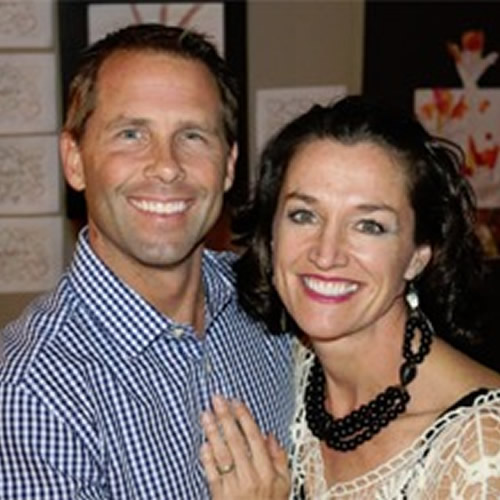
Kevin and Trena Yonkers-Talz
Kevin and Trena Yonkers-Talz are the co-founders and former co-directors of Casa de la Solidaridad, Santa Clara University’s praxis-based study abroad program in El Salvador that integrates faith formation, community living, accompaniment of the marginalized, and academic excellence. They are currently launching Centro Ignacio Ellacuría (CIE) in conjunction with Universidad Centroamericana José Simeón Cañas (UCA), the Jesuit university in El Salvador. CIE develops academic and formation programs that integrate the exploration of faith and the promotion of justice through a praxis-based liberationist pedagogy.
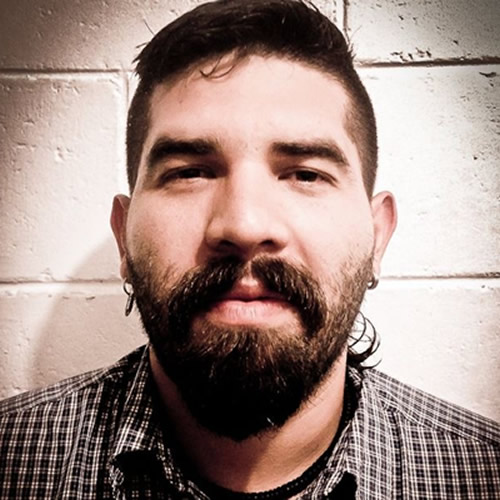
Juan José Martínez d’Aubuisson
Juan José Martínez d’Aubuisson is an anthropologist who studies gangs with a focus on the role of violence in their group dynamics. He has worked at several universities in North America and Latin America and has published journal articles, narrative chronicals about gangs, and books, including a 2010 volume of stories about Salvadoran women, Las Mujeres que Nadie Amó.
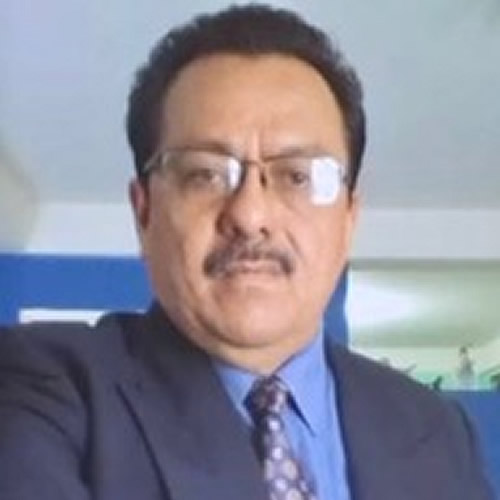
Pastor Nelson Moz
Pastor Nelson Moz is pastor at Eben-ezer Church in El Dina, a gang-infested neighborhood of San Salvador, who ministers to current and former gang members. He founded Huellas de Esperanza(Footsteps of Hope), which houses 17 former gang members who converted to Christianity. Moz and his team minister to inmates at the San Francisco La Gotera jail and run a small bakery outside the church to raise money for Huellas de Esperanza.
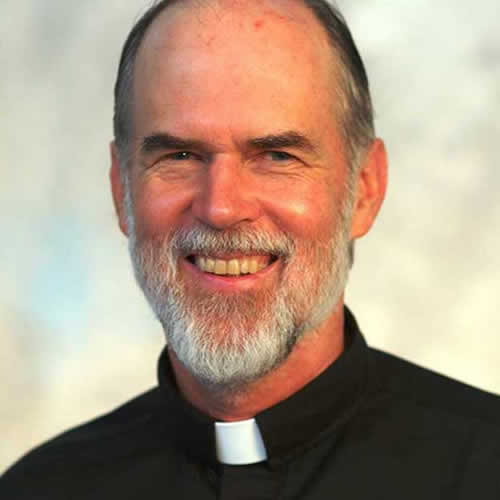
Rev. Michael Kennedy, SJ
Rev. Michael Kennedy is a longtime advocate for refugees, prisoners, and those affected by gang violence. He started Centro Pastoral Rutilio Grandeat Our Lady Queen of Angels-La Placita Church, which housed hundreds of Salvadoran refugees between 1984 and 1990 and was the first Roman Catholic Church in Los Angeles to be declared a public sanctuary. Fr. Kennedy also took part in the repopulation of Salvadoran refugees from Honduras back to El Salvador, where he subsequently worked with the Jesuit Refugee Service (JRS). He served as pastor at Dolores Mission in Los Angeles from 1994 to 2007. Kennedy founded the Jesuit Restorative Justice Initiative, a ministry that works with the incarcerated and crime victims, and advocates for the justice system to become more restorative than punitive.
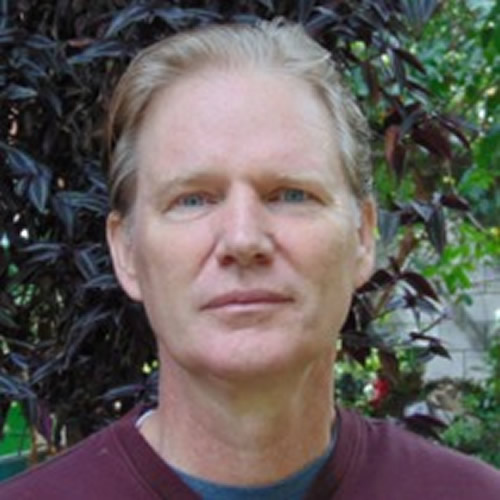
Richard Jones
Rick Jones is the youth and migration advisor in Latin America and the Caribbean for Catholic Relief Services. Based in El Salvador, he has led CRS programs that tackle issues such as poverty, gang violence, migration, and internal displacement, and designed development alternatives and helped respond to the region's biggest emergencies. Jones earned an MA in international relations from The Johns Hopkins School for Advanced International Studies (SAIS).
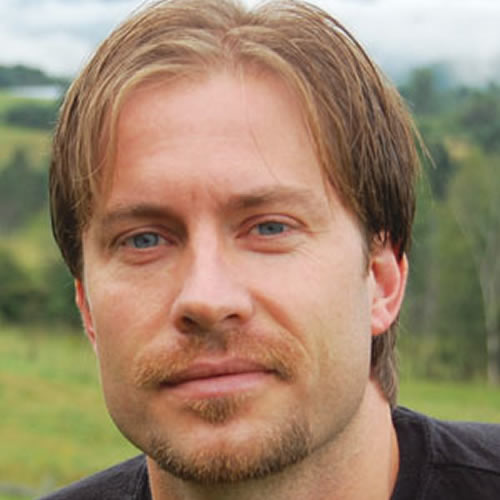
Robert Brenneman
Robert Brenneman is an assistant professor of sociology at Saint Michael’s College in Vermont whose research focuses on the impact of violence and violent social structures on human flourishing. His book Homies and Hermanos: God and Gangs in Central America (Oxford University Press, 2011) examines the lives of 63 former gang members, many of whom joined an evangelical congregation in an attempt to extricate themselves from gang violence. Brenneman currently advises a team of Guatemalan researchers studying the impact of Pentecostal and Catholic Charismatic movements on civic participation and social capital in Guatemala City. He received his MA and PhD in sociology from the University of Notre Dame.
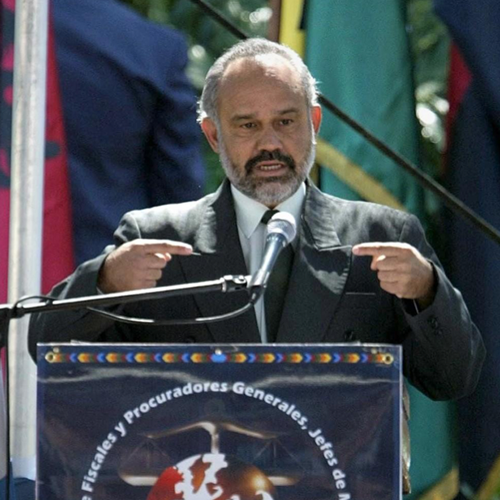
Roberto Cuéllar
Roberto Cuéllar is the director and permanent representative of the Human Rights Education Program of the Organization of Ibero-American States in San Salvador and the former executive director of the Inter-American Institute of Human Rights. Throughout his career, he has fought for the protection of human rights for indigenous populations, refugees, and migrants in the Andina region and Central America. In 1975, he co-founded Socorro Jurídico del Arzobispado (Christian Legal Aid of San Salvador), which provided free legal counsel to the poor and worked with Saint Archbishop Óscar Romero.
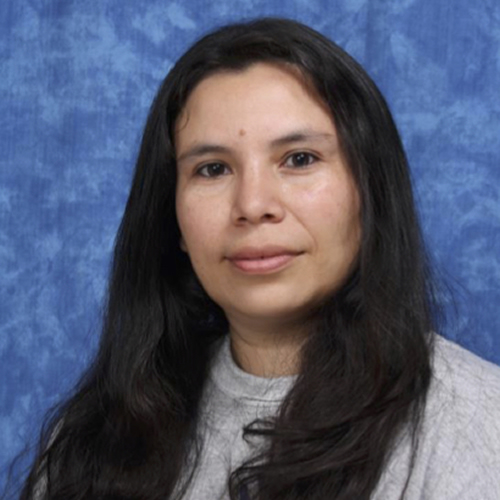
Rosa Anaya
Rosa Anaya is a human rights and peace-building activist in San Salvador who works with at-risk youth through Catholic Relief Services’ (CRS) YouthBuild program, which provides life and job skills development, entrepreneurship training, school reentry opportunities, job placement, and social services.
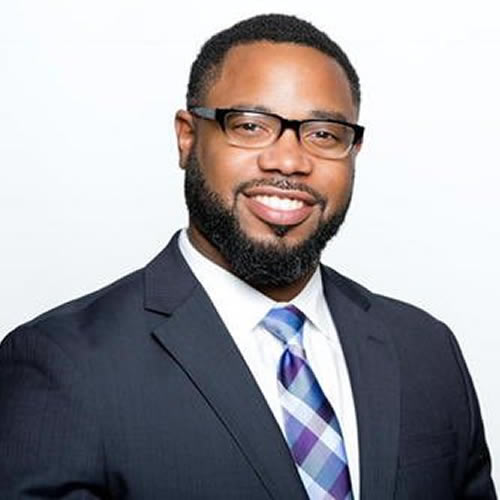
Rufus Burnett
Rufus Burnett is an assistant professor of theology at Fordham University who focuses on the sonic, spatial, and embodied realities of the Christian imagination. His constructive theological approach to systematics looks to expose the theological insight of groups that respond to domination through the creative use of cultural production. His latest text, Decolonizing Revelation: A Spatial Reading of the Blues, exposes blues music as an epistemic/cosmological framework that works to delink the Christian imagination of revelation from oppressive foreclosures within nationalism, Christian denominations, race, class, sexuality, and ethnocentrism. Burnett, who previously taught at the University of Notre Dame, earned an MA in religious studies from Loyola University New Orleans and a PhD in systematic theology from Duquesne University.
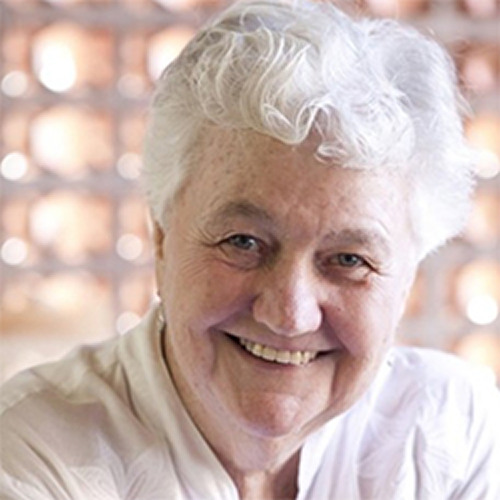
Sr. Peggy O’Neill
Sister Peggy O’Neill is the founder of El Centro Arte Para la Paz, an educational and cultural center in El Salvador that promotes peace through dance, art, and theological reflection. She served in the Diocese of San Salvador in 1986 by assisting refugees and accompanying them during the country’s civil war. O’Neill taught theology at Iona College for 25 years and continues to teach in El Salvador. She earned an MA from Marquette University and a PhD from New York University.
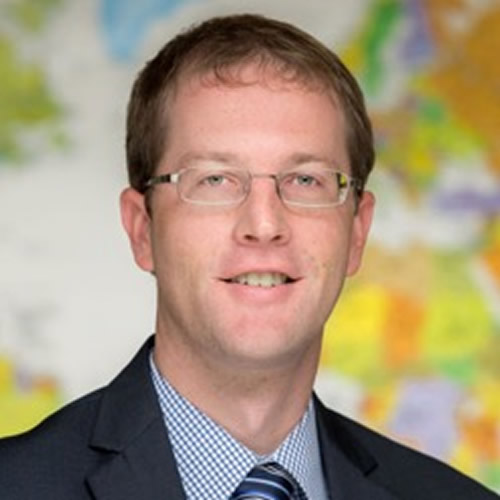
Thomas Hare
Tom Hare is a senior technical associate in the University of Notre Dame Initiative for Global Development who develops, implements, and evaluates international development programs. His research focuses on the rule of law and human rights programs in Central America. Hare holds a PhD in public policy analysis from Saint Louis University, as well as a dual master's in development management and policy from Georgetown University and the Universidad Nacional de San Martín in Argentina.
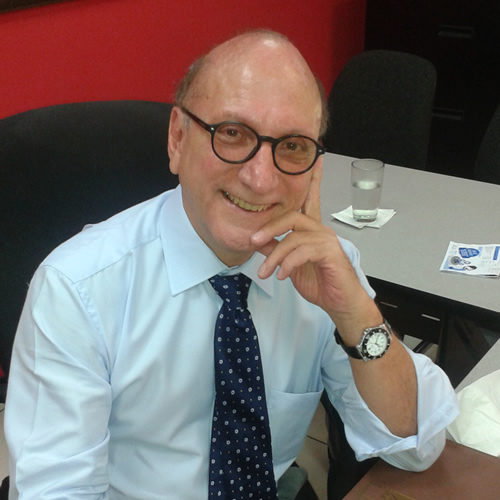
Mauricio Gaborit
Mauricio Gaborit is chair of the Department of Psychology of the Universidad Centroamericana José Simeón Cañas (UCA) of El Salvador and director of its graduate program in social intervention. He studies gender, social and gang violence, psychosocial intervention in political violence, disasters, and undocumented child migration to the United States. His current interests are researching historical memory in communities affected by the civil war in El Salvador, the decision process behind undocumented migration for children and their families, and the impact of migration on family structure and relationships. He has served as a consultant on irregular migration for the United Nations entities and the International Organization for Migration (IOM). Gaborit holds a PhD in social psychology from the University of Michigan.
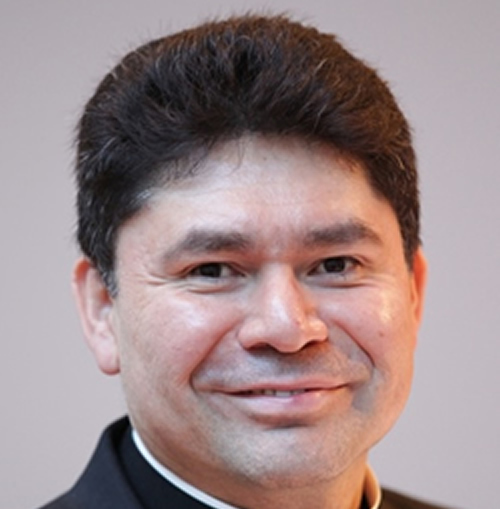
Rev. Juan Molina, OSST
Rev. Juan Molina is a priest in the Order of the Most Holy Trinity who recently ended his service as the director of the Subcommittee for the Church in Latin America at the United States Conference of Catholic Bishops (USCCB), which facilitates the development of intra-American ecclesial relations among bishops in the United States, Latin America, and the Caribbean. There, he was responsible for granting aid to pastoral projects in 25 Latin American countries. Molina previously served as a policy advisor for Latin America and global trade in the USCCB's Office of International Justice and Peace and as an advocacy program coordinator for Catholic Relief Services. Molina earned an MA in international political economy and development and a PhD in economics from Fordham University.
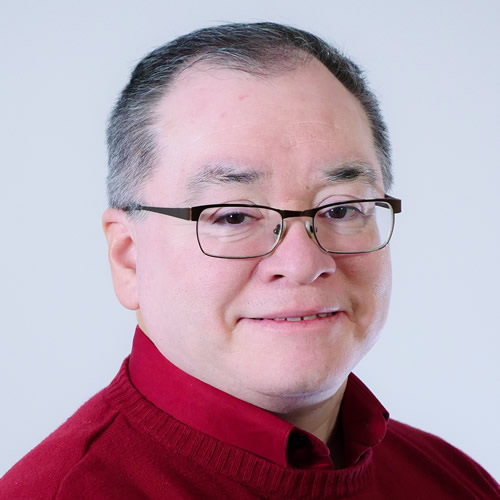
Marco A. López
Marco A. López is the director of the Óscar Romero Scholars Program at Catholic Theological Union. He has also served as a lay minister for over 30 years. For 9 years Marco served on the Pastoral Team at Holy Cross-Immaculate Heart of Mary in Chicago's Back of the Yards neighborhood where he and his family continue to live and serve. Marco is currently pursuing a Doctor of Ministry at Catholic Theological Union.

Laura Miller-Graff
Laura Miller-Graff is an assistant professor of psychology and peace studies and a core faculty member of the Kroc Institute for International Peace Studies at the University of Notre Dame. Her areas of expertise include childhood exposure to violence, intimate partner violence, psychosocial care, treatment evaluation, post-traumatic stress and resilience. Miller-Graff’s current projects focus on the intergenerational effects of violence against women, the psychological care of pregnant women exposed to violence and their families, and individual and family-based psychosocial support programs for adolescents and young adults exposed to chronic sociopolitical conflict. She earned a PhD in clinical science from the University of Michigan in 2013.
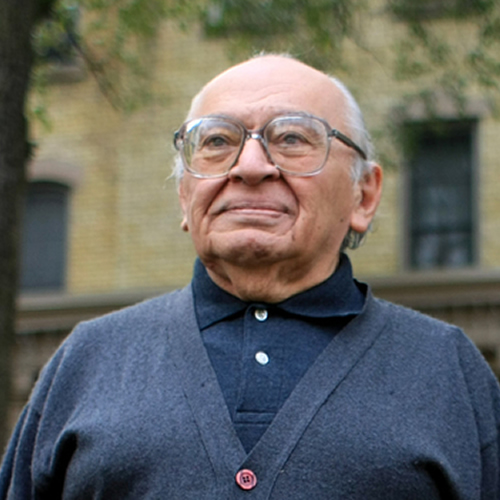
Rev. Gustavo Gutiérrez, O.P.
Rev. Gustavo Gutiérrez is Professor Emeritus of Theology at the University of Notre Dame. He is most well-known for his foundational work in Latin American liberation theology, A Theology of Liberation: History, Politics, Salvation. His other major books - which have been translated from Spanish into multiple languages besides English - touch as well on issues of spirituality and Latin American history, and include, We Drink From Our Own Wells: The Spiritual Journey of A People, On Job: God-Talk and the Suffering of the Innocent, The Truth Shall Make You Free, The God of Life, and Las Casas: In Search of the Poor of Jesus Christ. His essays have appeared in Theological Studies, La Revista Latinoamericana de Teología, and Páginas. Gutiérrez has been a principal professor at the Pontifical University of Peru, and has been visiting professor at many major universities in North America and Europe. He is a member of the Peruvian Academy of Language, and in 1993 he was awarded the Legion of Honor by the French government for his tireless work for human dignity and life, and against oppression, in Latin America and the Third World. He is currently working on a book exploring the historical background and continuing theological relevance of the preferential option for the poor. Fr. Gustavo Gutiérrez studied psychology and philosophy at Louvain, and eventually took a doctorate at the Institut Catholique in Lyons.





